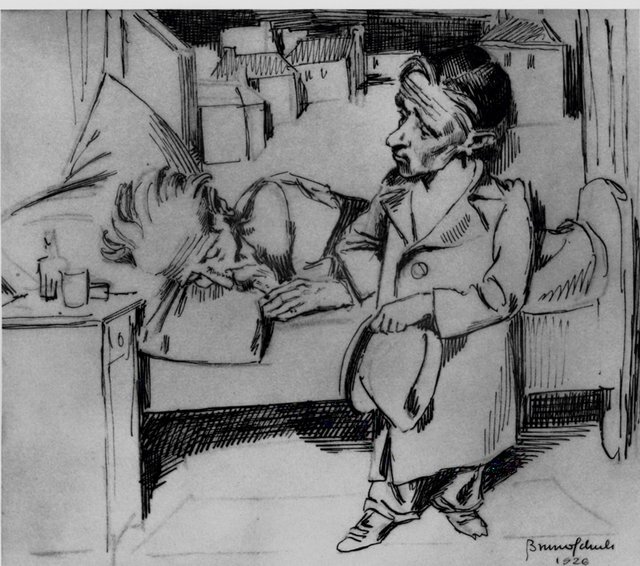What do you think?
Rate this book


160 pages, Paperback
First published January 1, 1933



The Demiurge has had no monopoly of creation, for creation is the privilege of all spirits. Matter has been given infinite fertility, inexhaustible vitality, and, at the same time, a seductive power of temptation which invites us to create as well. In the depth of matter, indistinct smiles are shaped, tensions build up, attempts at form appear. The whole of matter pulsates with infinite possibilities that send dull shivers through it. Waiting for the life-giving breath of the spirit, it is endlessly in motion. It entices us with a thousand sweet, soft, round shapes which it blindly dreams up within itself.
On that map, made in the style of baroque panoramas, the area of the Street of Crocodiles shone with the empty whiteness that usually marks polar regions or unexplored countries of which almost nothing is known. The lines of only a few streets were marked in black and their names given in simple, unadorned lettering, different from the noble script of the other captions. The cartographer must have been loath to include that district in the city and his reservations found expression in the typographical treatment.






“…these primitive forms were unremarkable compared with the richness of shapes and the splendour of the pseudofauna and pseudoflora, which sometimes appeared in certain strictly defined environments, such as old apartments saturated with the emanations of numerous existences and events; used-up atmospheres, rich in the specific ingredients of human dreams; rubbish heaps abounding in the humus of memories, of nostalgia, and of sterile boredom. On such soil, this pseudovegetation sprouted abundantly yet ephemerally, brought forth short-lived generations which flourished suddenly and splendidly, only to wilt and perish.”The pathos is increased infinitely when one knows his fate as a Jew in Galicia - shot as less than vermin by an eminently disrespectful SS officer.


